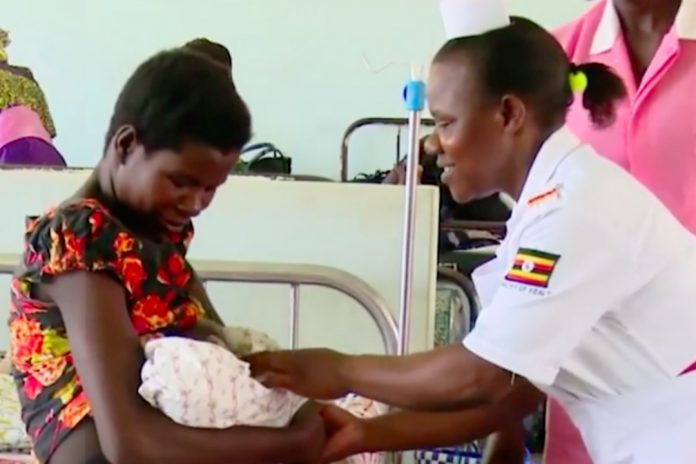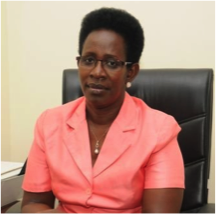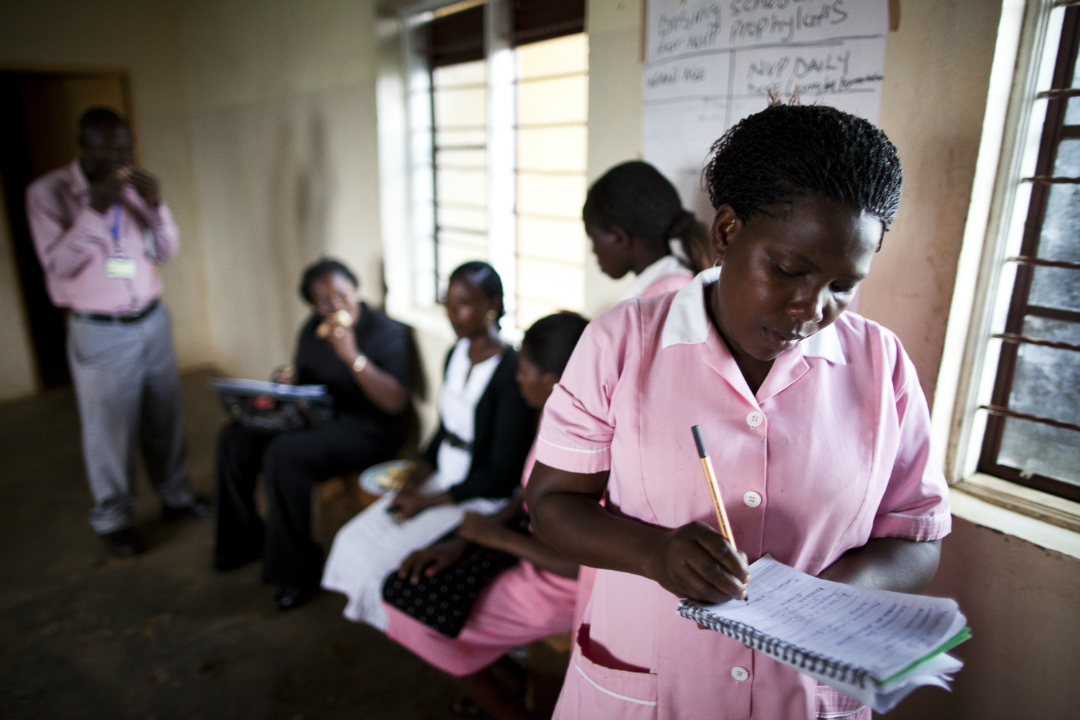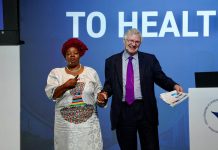
In Uganda, the Ministry of Health is working with a wide range of stakeholders to transform the country’s nursing and midwifery professions in a major effort to improve health for all the population.
Nurses and midwives form the backbone of health care delivery in Uganda, making up 72% of the public health care workforce. They are usually the first point of contact for most patients. Achieving universal health coverage in Uganda, among other national and global targets, depends on empowering nurses and midwives to build on and expand their knowledge and skills.
Investing in more nurses, nurse education and training, regulation, enhanced working conditions and developing practice in Uganda will strengthen their ability to contribute to the provision of better health care, promote gender equity and ultimately strengthen the economy of the country. There are, for example, only 61,813 nurses and midwives in Uganda (Uganda Nurses and Midwives Council, 2017) with a nurse/patient ratio of 1:11,000 against the recommended 1:1,000 ratio.
Partners in Nursing Now Uganda
The Ministry of Health in Uganda is working together with a broad range of partners, including the Uganda-UK Health Alliance, the Ministry of Education, UNFPA, UNICEF, WHO, Uganda Nurses and Midwives Council, African Centre for Global Health and Social Transformation, IntraHealth International, Jhpiego, Seed Global Health, Peace Corps and the Aga Khan University to bring about unprecedented change to the nursing and midwifery professions.
The creation of a national Nursing Now Uganda board, a nursing regulatory committee, nursing education committee and nursing practice committee is underway. As a result, a wide range of stakeholders – including nurses and midwives in clinical practice from across Uganda – are coming together to drive forward regulation, training, enhanced working conditions and innovation.
Dr Diana Atwine, Permanent Secretary of Uganda’s Ministry of Health and a driving force behind strengthening nursing and midwifery, said:

“Nurses must be organised and move forward in one direction and come with renewed energy and a collective society. We are ready to move with nurses and support them. Nurses are teachers for all, including doctors, and not much can be done without a nurse. Nurses and midwives in Uganda therefore have the potential to set standards and transform health and healthcare.”
“We are ready to move with nurses and support them”
Our partners in Uganda believe that wide-ranging actions are needed to bring about the changes they want to see. Nursing and midwifery ‘regulation, education and practice frameworks’ in Uganda have previously lacked effective enforcement, as well as a vision for the professional development of nurses and midwives.
Enforcing regulation of training and practice remains a challenge, where delays in approving policies hinder efforts to transform nursing and midwifery practice. The required leadership capacity to foster change and transformation in practice remains limited, leading to the unrecognised and undervalued contribution of nurses and midwives in health care reforms. The consortium believe that this is a very important area to be improved on and strengthened.

Nurse Tumusiime Noelipe at work in the Ruteete Health Centre, Uganda.
Credit: Trevor Snapp for IntraHealth International.
Next steps
Led by Uganda’s Ministry of Health, the Uganda-UK Health Alliance and wider consortium of partners, immediate plans for transforming the nursing and midwifery professions include:
- Reviewing the 1996 Uganda Nurses and Midwives Act to develop: a vision, a mechanism to establish recruitment agencies for nursing and midwifery in Uganda, and an agreement with law enforcement agencies.
- Developing nursing and midwifery education to meet the needs of the population at a higher level. Specific proposals include a centre of nursing and midwifery research and innovation, as well as guidelines for nursing and midwifery education management and governance.
- Transforming nursing and midwifery practice in Uganda to reach an internationally recognised level.
Collaborating and sharing progress – Nursing Now Africa
Uganda is already making good progress in collaborating with neighbouring countries across East Africa, including Rwanda, Zimbabwe, Kenya, Botswana and Tanzania to share their plans and progress, with the aim of jointly developing a Nursing Now Africa consortium.
Nursing Now will follow developments in Uganda and the creation of Nursing Now Africa, sharing the lessons and publicising the results achieved.
Contact Dr John Paul Bagala, Country Coordinator, Uganda UK Health Alliance for further information.





